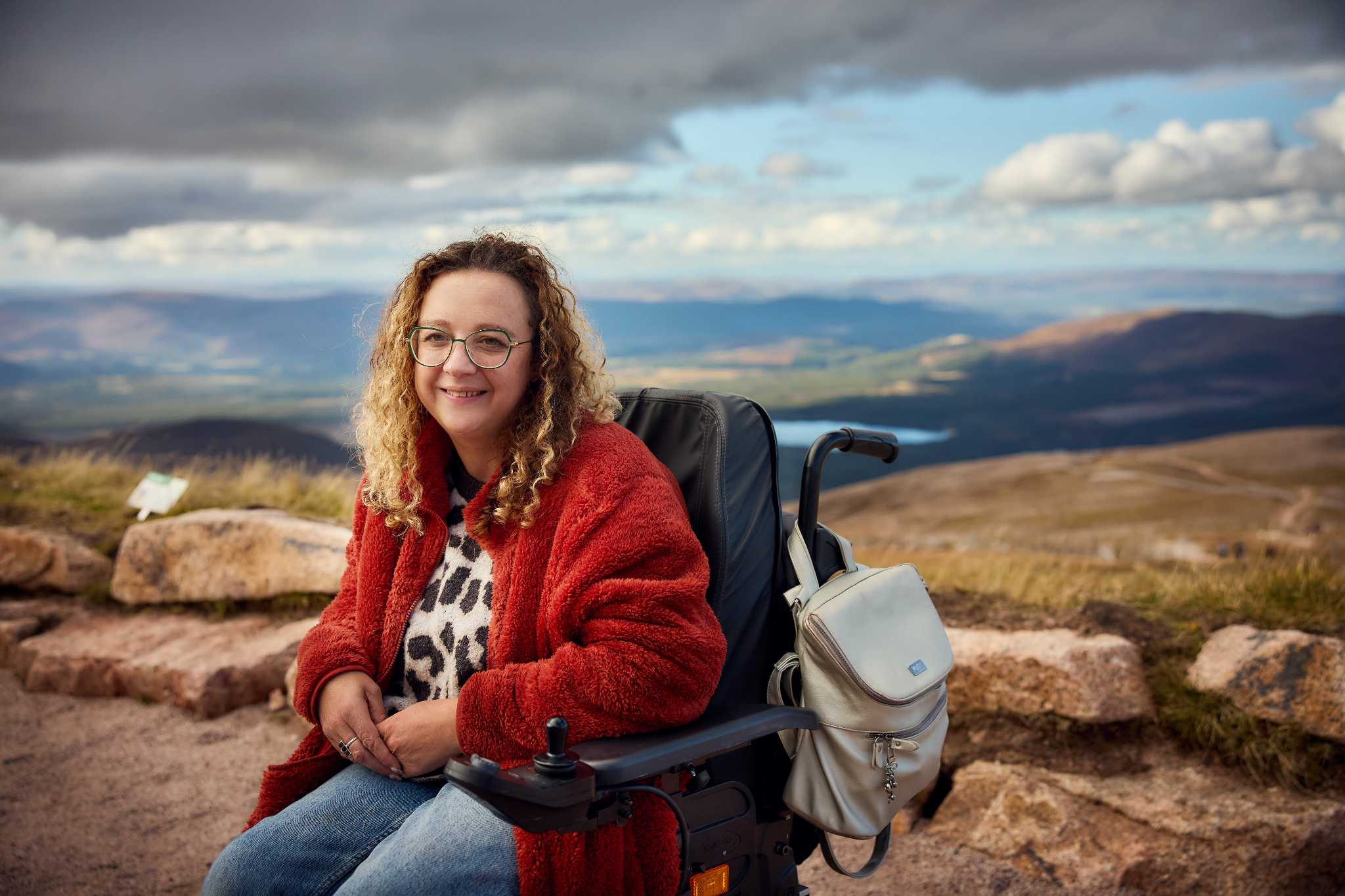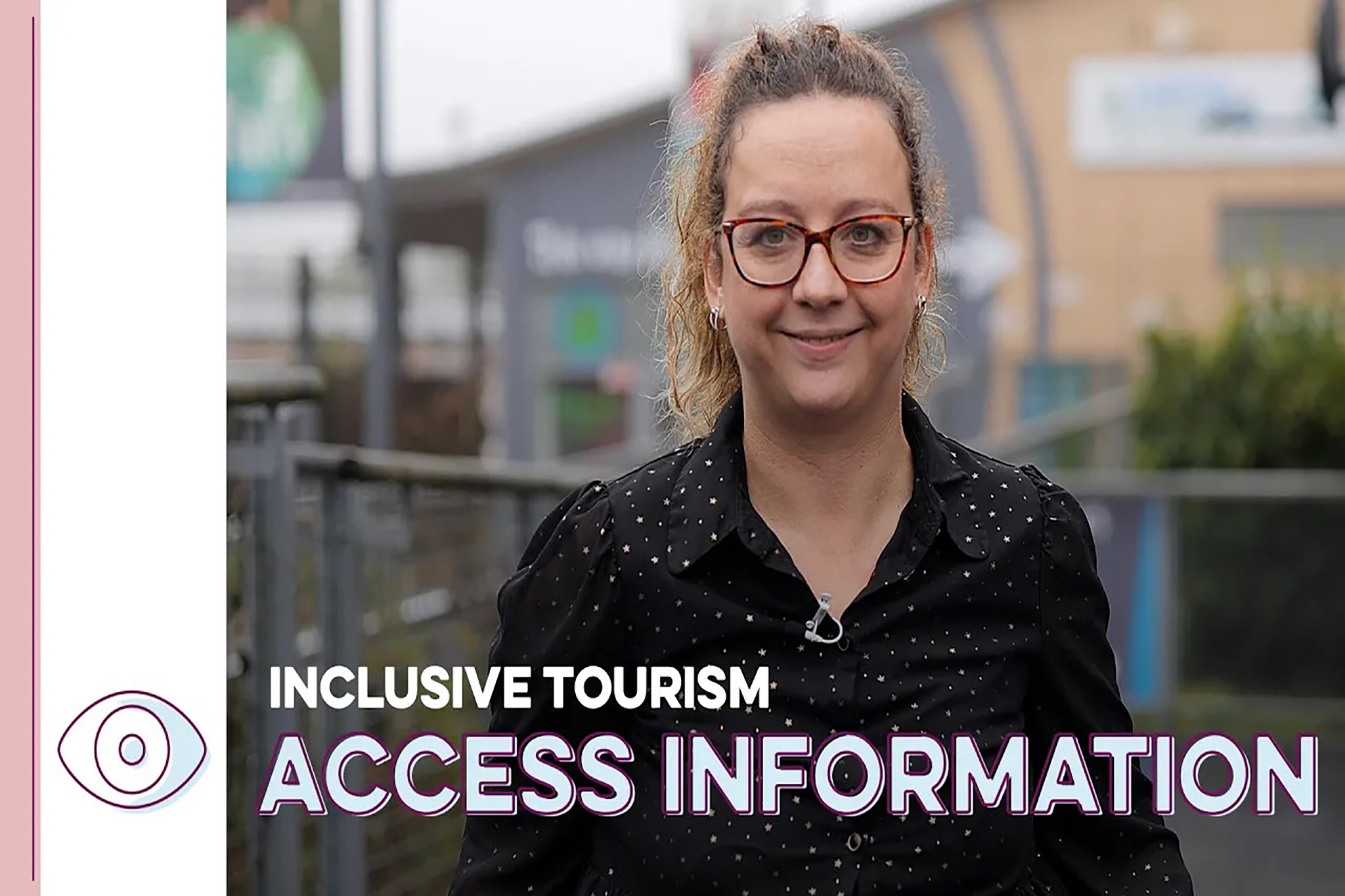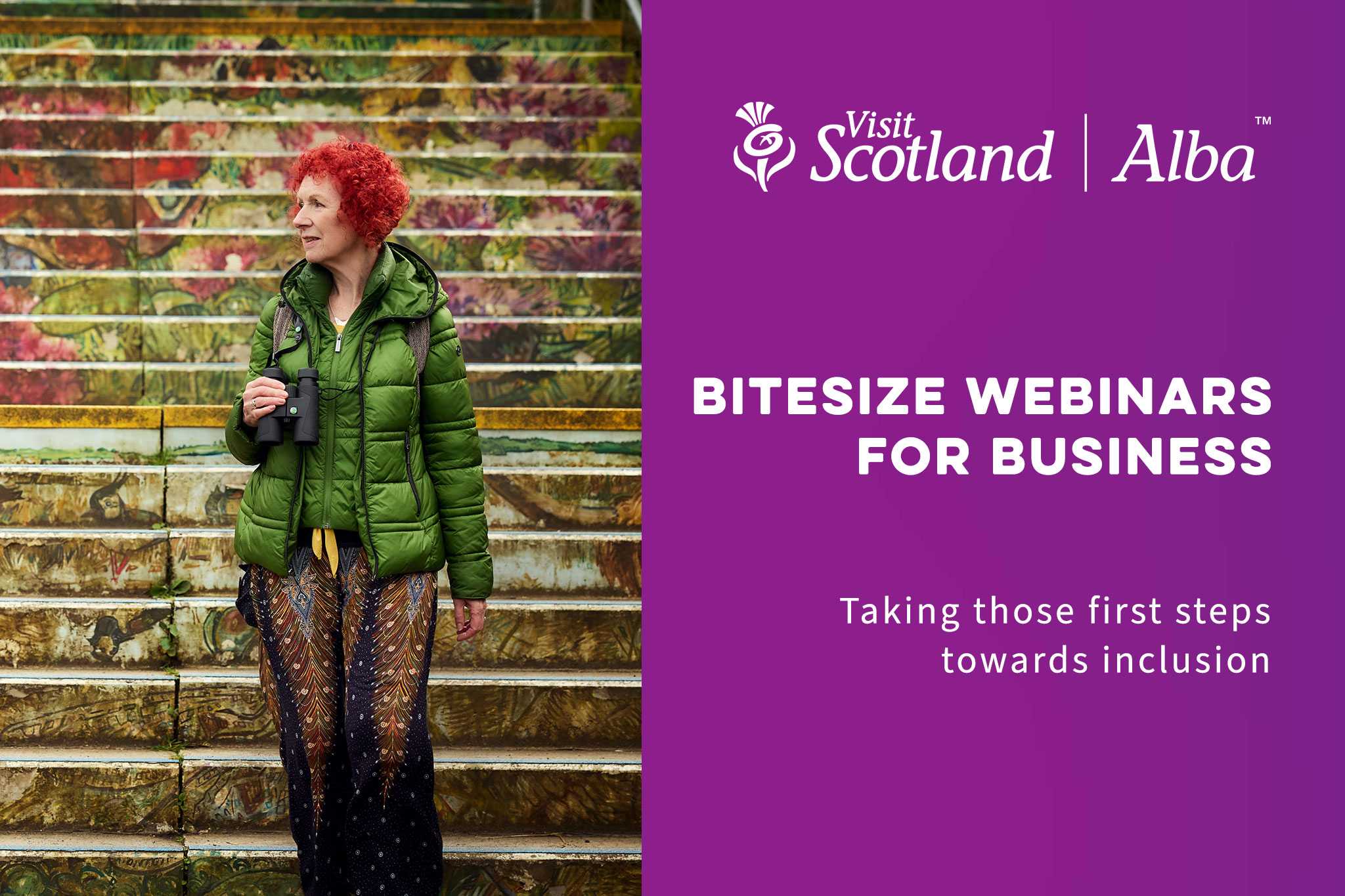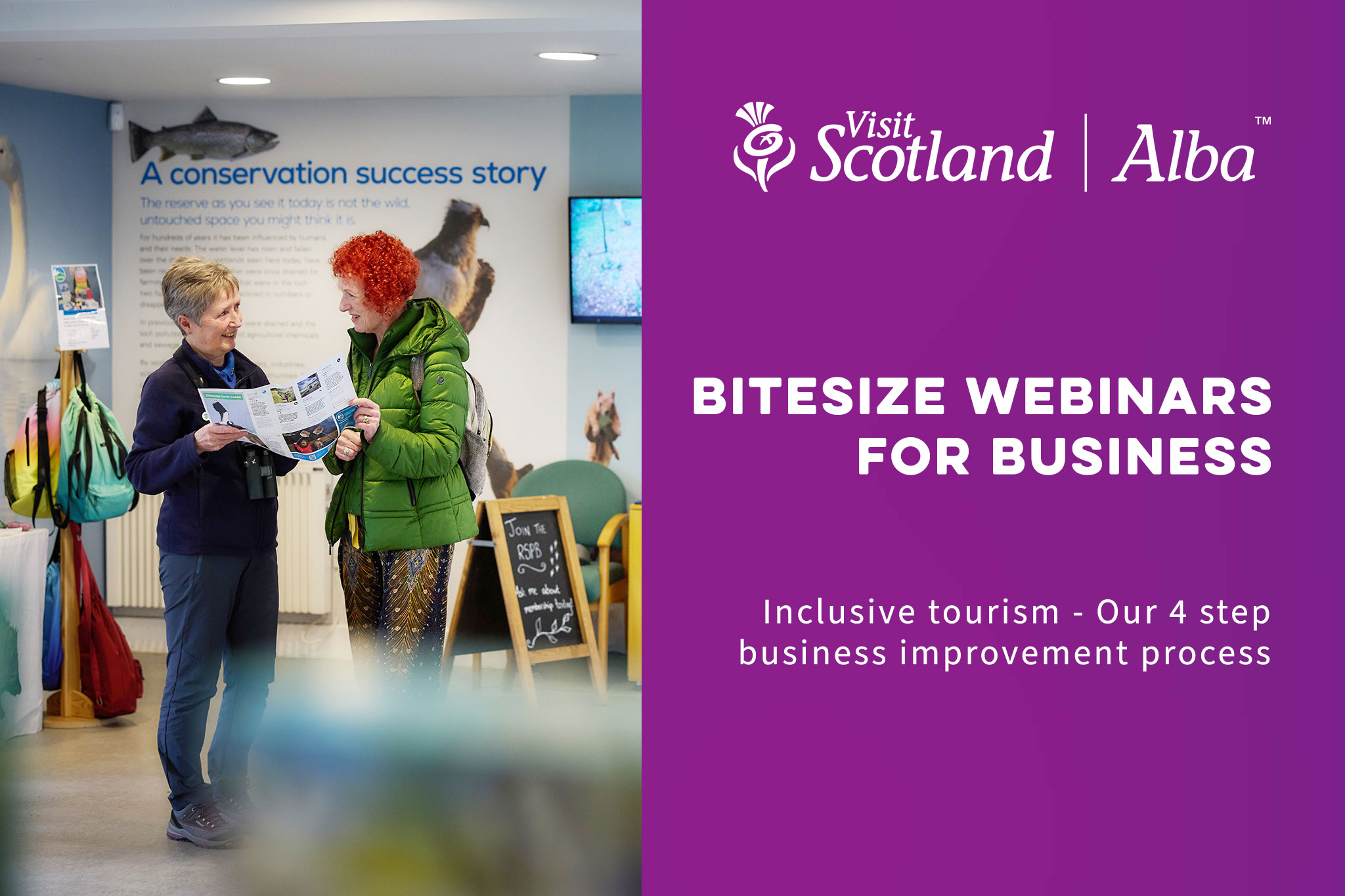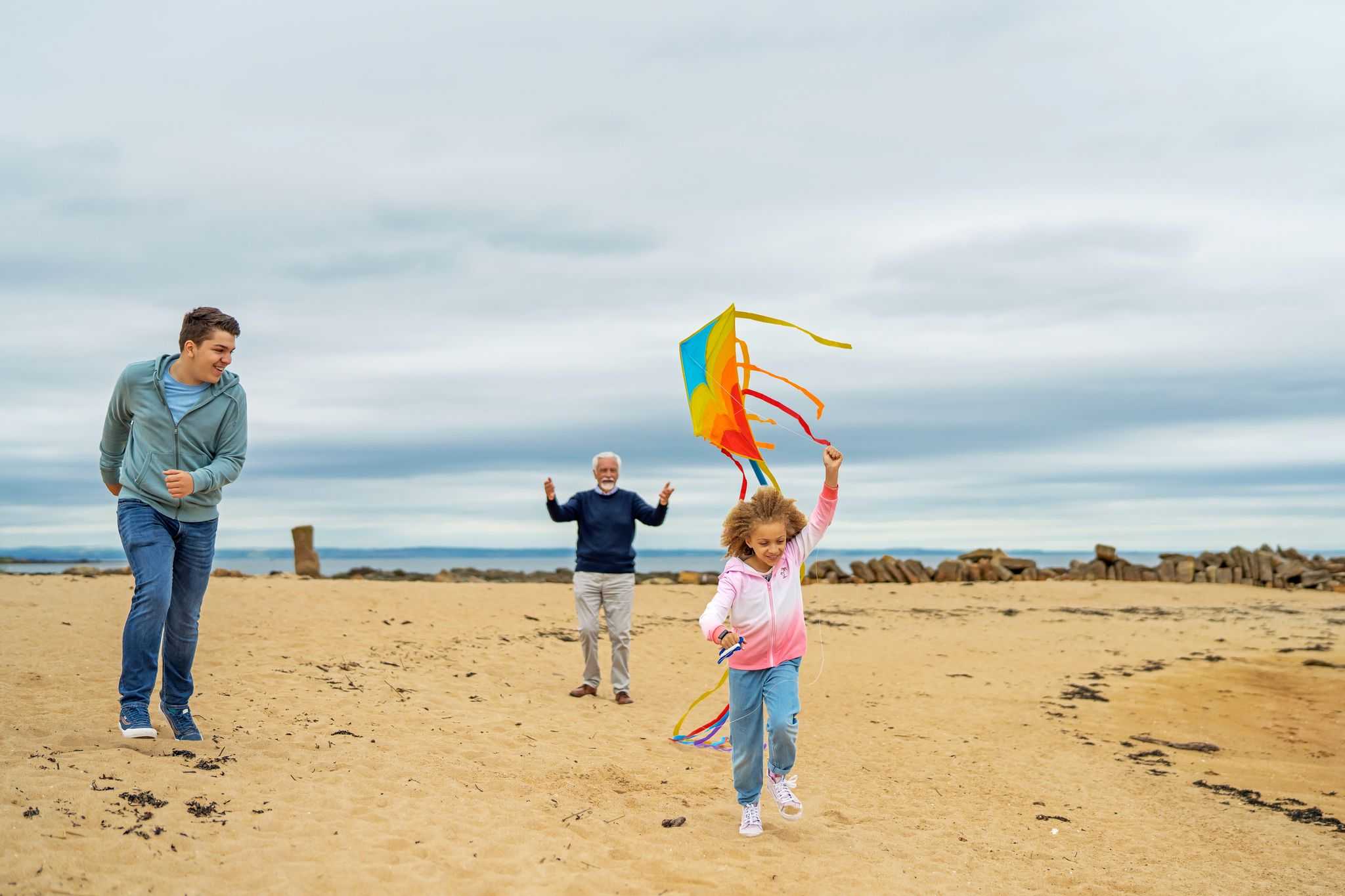Purple Tuesday
Purple Tuesday has over 30 years’ experience in supporting organisations to become more accessible and disability inclusive.
VisitScotland sponsor the Purple Tuesday social movement, which is a change initiative working to improve customer experience for disabled people and their families.
Businesses can sign up with a commitment to change at least one practice that year which will help with greater inclusion and accessibility. Examples of changes include implementing the hidden disabilities sunflower lanyard scheme or carrying out an access audit of your website.
These changes are marked on the Global Disabled Customer Celebration Day held every November.
Find out more with this video on what is Purple Tuesday and sign up for the Purple Tuesday movement 2025.
Purple 365 monthly webinar series
The Purple 365 webinar series focuses on building knowledge and understanding so that your business can provide a high-quality experience for disabled customers. Each month, topic experts share handy hints, tips, and advice. Sessions are recorded so your staff can watch them in their own time.
Scottish tourism and events businesses can benefit from free access to the monthly webinars as part of VisitScotland’s sponsorship agreement.
The 2026 schedule will be available shortly. Get in touch with the VisitScotland team for details of how to access the webinar series.
Short online videos
Watch a series of short tutorials from Purple Tuesday on customer service, disability language and website accessibility. CEO of Purple Tuesday, Mike Adams OBE, recorded these during Covid-19 but much of the advice is still relevant today.
Watch Purple's e-tutorials on YouTube.
Deaf Action
Deaf Action offer advice and training to improve customer service for deaf people. They can also advise businesses on equipment and adaptions to better cater for deaf customers.
The courses available are British Sign Language online and in-person, and deaf awareness.
They also offer some simple awareness tips to help improve communication with deaf customers.
Find out more from Deaf Action.
Royal National Institute for the Blind (RNIB)
RNIB offer training and other advice services to help businesses become accessible for people with sight loss.
Find out more from RNIB.
Dementia Friends Scotland
A free learning initiative offered by Alzheimer Scotland to reduce stigma and raise awareness of dementia. They share simple and practical changes businesses can do to become more dementia friendly.
Find out more from Alzheimer Scotland.
VisitScotland guide
Read our practical business guide for dementia-friendly tourism.
Equality & Human Rights Commission
Browse guidance for businesses on various topics with regards to equality.
Find out more from the Equality & Human Rights Commission.
Assistance dogs
Check out this guide for businesses on assistance dogs from Equality & Human Rights Commission.
